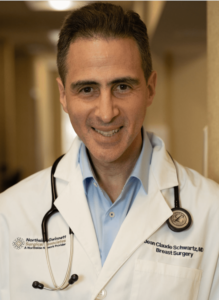Fax: 770-339-9804
Lawrenceville, Georgia 30046
Dealing with breast cancer is an incredibly challenging journey that affects not only women’s physical health but also their emotional well-being. During this difficult time, it is essential to explore all available options for recovery and regain a sense of normalcy. One such option that many women consider after undergoing a mastectomy is breast reconstruction. However, a common concern among breast cancer patients is whether or not this procedure is covered by insurance.
Therefore, it is essential to understand your insurance coverage for breast reconstruction to ensure proper financial planning and minimize any potential financial burdens. In this article, we will provide an overview to help you navigate and understand your insurance coverage for this life-transforming surgery.
Breast reconstruction is a surgical procedure that aims to rebuild the shape and appearance of the breast after a mastectomy or lumpectomy. It can help restore a woman’s self-confidence and sense of femininity, which may be significantly impacted by the loss of a breast due to cancer treatment. Although breast reconstruction is not a necessity for everyone, it is a viable option that many women explore.
Firstly, it’s important to understand that insurance coverage for breast reconstruction procedures can vary depending on several factors such as the type of insurance plan and the specific policy in place. However, it’s worth noting that in 1998, a federal law called the Women’s Health and Cancer Rights Act (WHCRA) was passed. This law mandates insurance coverage for breast reconstruction surgery after mastectomy. Under this law, insurance plans that cover mastectomy are required to provide coverage for breast reconstruction surgery, including surgery on the opposite breast for symmetrical results, and any necessary post-operative care. Nonetheless, it’s important to keep in mind that certain limitations and conditions may apply.
In order to determine your insurance coverage for breast reconstruction, it’s crucial to review your policy in detail. To begin with, you can reach out to your insurance provider and request a copy of your policy documents. Once you have the documents, pay close attention to the section that outlines coverage for breast reconstruction procedures. Look for specific information regarding eligibility requirements, in-network providers, and any pre-authorization requirements.
Moreover, when it comes to understanding your insurance coverage for breast reconstruction surgery, consider the following factors:
Review your insurance policy or plan documents to understand the specific coverage details related to breast reconstruction surgery. Look for information about covered procedures, deductibles, co-pays, co-insurance, and any limitations or exclusions.
Check if your insurance plan requires you to use in-network providers for breast reconstruction procedures. In-network providers or healthcare professionals and facilities that have negotiated rates with your insurance company, resulting in potentially lower out-of-pocket costs for you.
In many cases, insurance companies require pre-authorization for breast reconstruction procedures. Preauthorization involves obtaining approval from your insurance provider before undergoing the surgery. This process ensures that the procedure is medically necessary and meets specific criteria outlined in your policy. Failure to obtain preauthorization may result in denial of coverage or increased out-of-pocket expenses.
While insurance coverage for breast reconstruction is mandated by WHCRA, there may still be out-of-pocket expenses associated with the procedure. Deductibles, co-pays, and coinsurance are common factors that can contribute to the overall cost. It’s important to budget for these costs and consider any potential financial assistance or payment plans available.
Ensure you have the necessary documentation and medical records to support the medical necessity of breast reconstruction surgery. This may include pathology reports, surgical notes, and other documentation from your healthcare providers.
Familiarize yourself with the appeals process provided by your insurance company. If coverage for breast reconstruction surgery is denied initially, you may have the option to appeal the decision and provide additional information to support the medical necessity of the procedure.
There are several types of insurance plans, each with its own rules and regulations regarding coverage for breast reconstruction. Let’s explore some common types of insurance plans and what they typically cover:
Many individuals receive insurance coverage through their employers. These plans often include coverage for breast reconstruction procedures, as mandated by WHCRA. However, it is essential to review your specific policy to understand any limitations or requirements.
Individuals who purchase health insurance on their own may have coverage for breast reconstruction procedures. Please review the policy documents carefully to determine the extent of the coverage.
Medicare is a federal health insurance program primarily for individuals age 65 and older. Medicare generally covers breast reconstruction procedures following a mastectomy. Please consult Medicare guidelines or speak with a representative to understand the specifics of your coverage.
Medicaid is a state-run program that provides health insurance for low-income individuals and families. While coverage for breast reconstruction varies by state, many Medicaid programs cover the procedure. Check with your local Medicaid office or review your policy documents from our information.
HMOs and PPOs are types of managed care plans that often offer coverage for breast reconstruction procedures. However, it is important to consult your insurance provider to understand the specific requirements, such as using in-network providers or obtaining pre-authorization.
Navigating insurance coverage for breast reconstruction can feel overwhelming, especially during an already challenging time. To fully understand your insurance coverage for this procedure, contact your insurance provider directly. Discuss your specific situation, ask questions about coverage, and request a clear explanation of benefits related to your surgery. This direct communication will help ensure accurate and personalized information regarding your insurance coverage.
It is also advisable to seek guidance from healthcare professionals, such as your oncologist or your surgeon specializing in breast reconstruction. These professionals can provide valuable insights into the coverage options available and guide you through the process.
You may also consider seeking assistance from resources such as patient advocacy organizations, health care providers billing departments, or social workers who specialize in navigating insurance coverage. They can provide guidance, support, and resources to help you understand and navigate the insurance process.
Remember, you are not alone- many resources are available to help you through this process and support you in regarding your self-confidence and well-being.
 Dr. Schwartz is a highly respected national leader in oncoplastic breast surgery. He is a preferred provider for the majority of insurance plans and is highly recommended by insurance companies and patients alike. By performing most of his surgeries in an outpatient ambulatory center, he is able to save his patients on hospital costs, co-pays, and more.
Dr. Schwartz is a highly respected national leader in oncoplastic breast surgery. He is a preferred provider for the majority of insurance plans and is highly recommended by insurance companies and patients alike. By performing most of his surgeries in an outpatient ambulatory center, he is able to save his patients on hospital costs, co-pays, and more.
As a breast surgeon and reconstructive surgeon, he is able to perform most mastectomies and reconstructions in one surgery, saving his patients time and money by seeing only one expert, paying only one set of deductibles and co-pays, and most importantly, reducing time spent in the operating room while providing unparalleled results.
Dr. Schwartz and his entire staff specialize in breast surgeries, and as such, are highly experienced in dealing with insurance companies. They can provide guidance and invaluable information to women undergoing breast reconstructive surgeries. Additionally, as part of the Northside Hospital system, patients benefit beyond Dr. Schwartz’s practice.
Dr. Schwartz is always accepting new patients diagnosed with breast cancer and makes it his priority to see them immediately, despite his very busy schedule.

